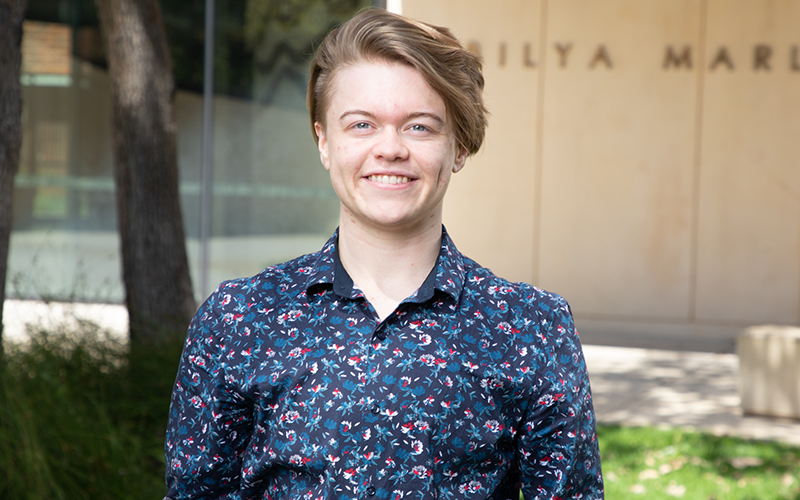Search

News & Events
Trans Pathways researcher recognised as one of Australia’s Tomorrow MakersYouth mental health researcher Penelope Strauss has been named an AMP Tomorrow Maker – the first researcher from The Kids Research Institute Australia to win one of the annual AMP Foundation grants.

News & Events
Lancet paper finds hormone therapy for trans young people can improve mental health - but authors say more research is desperately neededA Lancet-published review of the evidence around the use of gender-affirming hormones and surgery in trans children and adolescents has found such interventions can lead to a marked improvement in mental health outcomes and quality of life.

News & Events
Premier’s Science Awards finalists recognised for work in physical activity, cancer and mental healthFour The Kids Research Institute Australia researchers from a diverse range of fields have been named as finalists for the prestigious 2022 Premier’s Science Awards.

News & Events
Youth mental health researcher named joint Shell Aboriginal STEM Student of the YearYouth mental health researcher named joint winner of the Shell Aboriginal STEM Student of the Year category at the 2022 Western Australian Premier’s Science Awards.

News & Events
Anaesthesia, suicide prevention and rare disease research supported by Telethon 2022The generous support of West Australians through Channel 7’s Telethon Trust will help support vital child health research at The Kids Research Institute Australia in 2023.

News & Events
Self-Compassion in the wake of COVID-19 lockdownWith COVID-19 restrictions starting to lift and families resuming some level of ‘normal life’, it is natural to have mixed feeling during this time, says The Kids mental health researcher.
Research
Mental health difficulties among trans and gender diverse young people with an autism spectrum disorder (ASD): Findings from Trans PathwaysRecent research highlights an overlap of gender diversity and autism spectrum disorders (ASD); however, data on individuals who are trans and also on the autism spectrum are largely from clinical samples and may not be representative of individuals who are trans with ASD in the general population. In addition, there is scant literature on the mental health of these individuals and their experiences in accessing gender-affirming care.
Research
Non-Suicidal Self-Injury and Outcome Expectancies: The Roles of Self-Efficacy, Cognitive Reappraisal, and Expressive SuppressionAccording to the Cognitive Emotional Model of Non-Suicidal Self-Injury (NSSI), this behavior is governed by a complex interplay of NSSI-related cognitions (i.e., a person's expected outcomes of self-injury and self-efficacy to resist NSSI) and emotion-regulatory strategies (i.e., cognitive reappraisal and expressive suppression). To empirically test this proposition, the current study examined the moderating roles of self-efficacy to resist NSSI, cognitive reappraisal, and expressive suppression in the relationships between outcome expectancies and NSSI frequency among university students.
Research
Perceived stigma and self-stigma in young people at ultra-high risk for psychosis: Associations with identity-related, psychological and functional outcomesPerceived stigma and self-stigma negatively affect identity-related, psychological and functional outcomes among stigmatised populations. There is limited research exploring the impact of stigma among young people at ultra-high risk (UHR) for psychosis. We investigated the association of perceived stigma and self-stigma with these outcomes in young people at UHR.
Research
The Luminos Project: Co-Designing a Short-Stay Suicide Support Model for Young PeopleSuicide was the leading cause of death among young Australians aged 15-24 years old in 2023, with 392 lives lost. The continued high numbers of youth suicide demand urgent exploration of alternative approaches to suicide intervention in this population. The United Kingdom-based suicide service Maytree offers an innovative short-term stay for people experiencing suicidal thoughts. Grounded by the Maytree model-of-care, the aim of the current study was to co-design a short-stay service responsive to the specific needs of suicidal young people.
